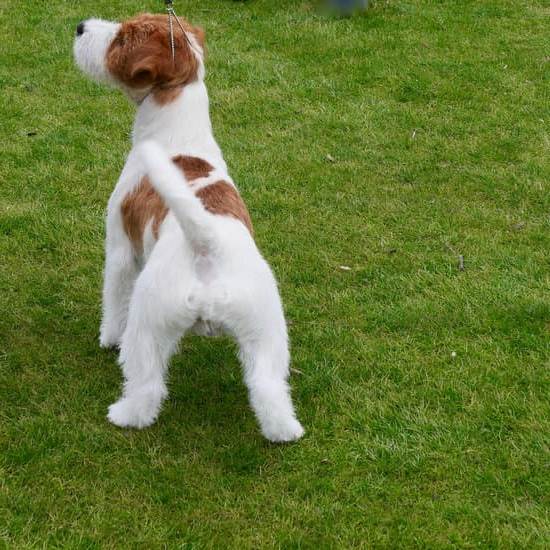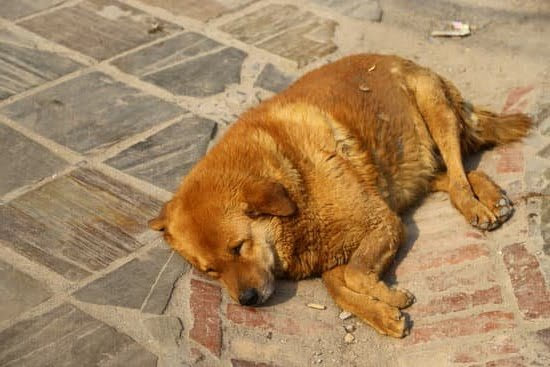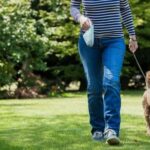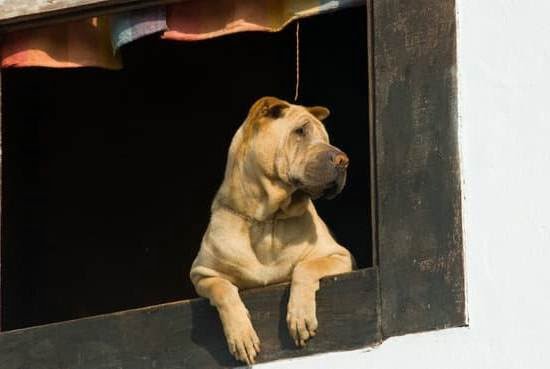Coon dogs, also known as raccoon hounds, are highly skilled hunting dogs that have been bred for their keen sense of smell and ability to track down raccoons. Training these dogs is essential to ensure their performance and behavior meet the expectations of hunters or as loyal companions. In this article, we will delve into the question of how old is too old to train a coon dog and explore the factors that can affect the training process.
Training a coon dog is not just about teaching it basic commands or hunting skills; it goes beyond that. A well-trained coon dog exhibits obedience, discipline, and proper behavior in various settings. Whether you plan to use them for hunting purposes or simply want them as a loving companion, investing time and effort in training will yield numerous benefits.
A well-trained coon dog becomes an invaluable partner in the field, assisting hunters with tracking, treeing, and trapping raccoons. Additionally, trained coon dogs make for better family pets as they possess enhanced social skills and behave appropriately around people and other animals. The bond formed during training strengthens the trust between the owner and the dog, creating a harmonious relationship based on mutual understanding.
Proper training ensures that your coon dog can handle different environments and situations without becoming aggressive or displaying destructive behaviors. Therefore, addressing how old is too old to train a coon dog becomes an important consideration for owners looking to establish a strong foundation from an early age or continue honing their older companion’s skills.
Understanding the Aging Process
As coon dogs age, their ability to learn and retain training can be influenced by various factors. Understanding how the aging process affects a coon dog’s cognitive abilities and overall health is crucial in determining the best approach to training.
Firstly, breed plays a significant role in how aging affects a coon dog’s learning capabilities. Certain breeds may exhibit different rates of cognitive decline or physical limitations as they age. For example, larger breeds may experience joint issues or reduced mobility, while smaller breeds may have fewer age-related health concerns. It is important for owners to research their specific breed and understand the typical changes that occur with age.
In addition to breed, individual characteristics should also be taken into account when considering an older coon dog’s ability to learn. Some dogs may naturally have a slower learning pace or may become more cranky or disinterested as they age.
On the other hand, some older dogs continue to be motivated learners and are eager to participate in training sessions. Each dog is unique, so it is important to tailor training methods according to their personality and level of receptiveness.
Overall health is another crucial factor when assessing an older coon dog’s suitability for training. Health conditions such as arthritis, vision or hearing loss can impact their ability to perform certain tasks. Before starting or continuing training, it is advisable for owners to consult with a veterinarian who can assess the dog’s physical fitness and recommend any necessary modifications or precautions.
To ensure successful training outcomes for older coon dogs, it is important that owners evaluate and understand these affecting factors before designing their training plan. By taking into consideration breed tendencies, individual characteristics, and overall health status, trainers can adapt their methods effectively and optimize the learning experience for their senior coon dogs.
Assessing the Dog’s Physical and Mental Fitness
Before starting or continuing training, it is important to assess your coon dog’s physical and mental fitness. Understanding your dog’s capabilities will not only help you tailor the training to their specific needs but also ensure that they are able to learn and retain the information effectively. Here are some key indicators to consider when evaluating your coon dog:
- Mobility: Assess your dog’s mobility and overall physical condition. Are they able to move comfortably without any signs of pain or stiffness? Keep in mind that certain health issues such as arthritis or joint problems can affect their ability to perform certain tasks or exercises.
- Energy Levels: Take into account your dog’s energy levels. Are they active and enthusiastic during training sessions, or do they seem lethargic and uninterested? Dogs with low energy levels may require shorter training sessions or more frequent breaks.
- Cognitive Abilities: Evaluate your coon dog’s mental capabilities. Can they focus on tasks for an extended period of time? Do they show signs of confusion or forgetfulness? Some older dogs may experience cognitive decline, which can impact their learning abilities. It is important to be patient and adapt training methods accordingly.
Once you have assessed these aspects of your coon dog’s physical and mental fitness, you can adjust the training program accordingly to maximize its effectiveness. For example, if your dog has mobility issues, you may need to modify certain exercises or introduce alternative ways of practicing skills that put less strain on their body. Similarly, if cognitive decline is apparent, incorporating more repetition and reinforcement into the training routine can help improve learning outcomes.
Remember that every coon dog is unique, so it is crucial to pay attention to their individual needs throughout the training process. By considering their physical and mental fitness, you will be better equipped to set realistic expectations, make necessary adjustments, and create a positive learning environment for your beloved companion.
- Assess your coon dog’s mobility and overall physical condition.
- Evaluate their energy levels to determine the intensity and duration of training sessions.
- Take note of their cognitive abilities, as older dogs may experience decline in learning capabilities.
- Modify exercises or introduce alternatives for dogs with mobility issues.
- Incorporate repetition and reinforcement for dogs experiencing cognitive decline.
Starting Young
Puppies are like sponges, ready to soak up all the knowledge and skills they need to become well-trained coon dogs. Starting training at a young age not only helps shape their behavior and performance but also establishes a strong foundation for future learning. When it comes to puppy training, there are a few key areas to focus on for coon dogs.
Socialization is an essential aspect of puppy training for coon dogs. By exposing them to various people, animals, environments, and experiences, you help them develop confidence and adaptability. Introduce your puppy to different sights, sounds, and smells that will be encountered during hunting or everyday life. This exposure will lay the groundwork for their ability to handle new situations with ease.
Basic obedience commands are another crucial component of puppy training for coon dogs. Teaching commands like sit, stay, come, and heel builds the dog’s responsiveness and establishes clear communication between you and your dog. Consistency is key when teaching these commands; practice them regularly in different settings to ensure your puppy understands and responds reliably.
Lastly, incorporating scent training into your puppy’s early training sessions is essential for coon dogs. Introduce them to different scents related to the game they will be hunting in the future. Start by hiding small articles with distinct smells around their living area or using scented toys during playtime. This initial exposure will help develop their natural abilities as scent hounds.
| Training Components | Recommended Age |
|---|---|
| Socialization | 8-16 weeks |
| Basic Obedience Commands | 10-14 weeks |
| Scent Training | 12-16 weeks |
Adult Dogs
Understanding the Optimal Age Range
When it comes to training adult coon dogs, finding the ideal age range is crucial for a successful training experience. While there is no one-size-fits-all answer, many experts recommend starting training between 6 months to 2 years of age. This age range allows the dog to have reached a level of maturity where they can understand and retain commands while still being receptive to learning new skills.
The reason behind this recommendation lies in the developmental stages of coon dogs. At around 6 months, most coon dogs have completed their physical growth and are mentally ready to start learning more complex tasks beyond basic obedience commands. By waiting until this age, you give them time to build a foundation of trust and bond with their owner while gradually introducing more advanced exercises.
Adapting Training Methods for Adult Dogs
Training an adult coon dog may require some adjustments compared to training a puppy. One key aspect is understanding that they may come with pre-existing behaviors or habits that need addressing. It’s essential to remain patient and consistent throughout the training process, reinforcing positive behaviors while redirecting unwanted ones.
Additionally, building on prior training is crucial when working with adult coon dogs. If your dog has already undergone basic obedience training, use those skills as a foundation for further development. Stay consistent with the commands they know and slowly introduce new challenges to build on their existing knowledge.
It’s also important to tailor the pace of training according to your dog’s individual characteristics. Some adult coon dogs may take longer than others to grasp certain skills due to their temperament or previous experiences. Don’t be discouraged if progress seems slow initially; every dog learns at their own pace.
Ultimately, age shouldn’t deter owners from beginning or continuing the training process with their adult coon dogs. With patience, adaptability, and the right approach, coon dogs of any age can still learn and thrive through training.
Tailoring Training to Older Dogs
In this section, we will discuss specialized training techniques that are suited for older coon dogs. As dogs age, they may face physical and cognitive challenges that can impact their ability to learn and retain new skills. However, with the right approach and adjustments to training methods, older coon dogs can still benefit from continued training.
One important aspect of training older coon dogs is to focus on exercises that maintain mental stimulation. Mental exercise is just as important as physical exercise for dogs, especially as they get older. Engaging their minds through puzzle toys, scent work, or obedience exercises can help keep their brains sharp and prevent cognitive decline. Additionally, incorporating positive reinforcement techniques into training sessions can motivate and encourage older coon dogs to continue learning.
Another key consideration when tailoring training for older coon dogs is to reinforce prior training. Older dogs may have already learned basic commands or have some level of previous training experience. By reinforcing these existing skills, owners can build upon the dog’s prior knowledge and deepen their understanding of commands or behaviors.
Older coon dogs may also face specific challenges during the training process. For example, they may have reduced mobility or experience joint pain due to arthritis. It is crucial to take these factors into account when designing a training routine for them. Using low-impact exercises or modifying certain activities can help prevent discomfort or injury.
Overall, tailoring training to older coon dogs requires a combination of patience, adaptability, and understanding of their specific needs. By providing mental stimulation, reinforcing prior training, and addressing unique challenges faced by older dogs, owners can ensure that their coon dogs continue to learn and thrive throughout their lives.
| Training Techniques for Older Dogs | Description |
|---|---|
| Mental Stimulation | Incorporate puzzle toys or scent work to keep their minds sharp and prevent cognitive decline. |
| Reinforcing Prior Training | Build upon existing skills and deepen the dog’s understanding of commands or behaviors. |
| Adapted Exercises | Modify training routines to accommodate reduced mobility or joint pain in older coon dogs. |
Overcoming Obstacles
Building Trust and Establishing Bond
When it comes to training older rescue coon dogs, one of the biggest obstacles that owners may face is building trust and establishing a strong bond with the dog. Many rescue dogs have experienced trauma or neglect in their past, which can make them wary of humans and reluctant to engage in training. To overcome this obstacle, it is crucial to approach training with patience, understanding, and empathy.
Building trust with an older rescue coon dog starts with allowing them to adjust to their new environment at their own pace. Give them time and space to explore their surroundings and get comfortable in their new home. Avoid overwhelming them with too many commands or training exercises right away.
Instead, focus on developing a bond through positive reinforcement techniques, such as rewards for simple behaviors like sitting or coming when called. This will help the dog associate training sessions with positive experiences and build confidence in their abilities.
Addressing Potential Trauma
Rescue coon dogs may have faced traumatic experiences in the past that can manifest as fear, anxiety, or other behavioral issues during training. It is essential to be aware of these potential traumas and address them sensitively.
If a dog shows signs of fear or anxiety during training sessions, take a step back and reassess the situation. Consider consulting a professional trainer or behaviorist who has experience working with rescue dogs. They can offer guidance on how to modify training methods and provide support tailored to the specific needs of your dog.
Additionally, it is crucial to create a safe and predictable environment for the dog. Stick to consistent routines, establish clear boundaries, and provide them with a designated space where they feel secure and relaxed. Avoid forcing the dog into situations that trigger fear or anxiety; instead, gradually expose them to these situations using desensitization techniques.
Adapting Training Techniques
Training older rescue coon dogs may require adapting training techniques to suit their specific needs and abilities. It is important to remember that these dogs may have had little to no prior training or socialization, so patience and a gentle approach are key.
Start with basic commands and focus on building a foundation of trust and communication. Positive reinforcement methods, such as clicker training or using treats, can be highly effective when working with older rescue coon dogs. Break down complex skills into smaller, more manageable steps to prevent the dog from becoming overwhelmed or discouraged.
Tailor training exercises to stimulate both their physical and mental capabilities. Incorporate puzzle toys, scent games, or enrichment activities to keep them engaged and motivated. Remember that consistency is crucial in training older rescue dogs – regular practice sessions will strengthen their learning and help them feel more secure in their abilities.
By addressing these obstacles head-on and tailoring training techniques to suit the individual needs of older rescue coon dogs, owners can provide them with the opportunity to learn new skills, build confidence, and thrive in their forever homes.
Ongoing Training
When it comes to training a coon dog, ongoing training should be seen as a lifelong commitment. While it’s important to start training at a young age, the learning process doesn’t end there. In fact, continuous training throughout a coon dog’s life is crucial for their development and overall well-being.
One of the main benefits of ongoing training is the mental stimulation it provides to coon dogs. Dogs are intelligent creatures that thrive on mental challenges and stimulation. By engaging in regular training sessions, whether it’s practicing obedience commands or honing their hunting skills, coon dogs are kept mentally sharp and engaged. This can help prevent boredom and destructive behavior often associated with dogs that lack mental stimulation.
Additionally, ongoing training allows for behavior modification in coon dogs. As they grow and mature, certain behaviors may surface that need to be addressed. Through consistent and patient training, owners can work on correcting undesired behaviors and reinforcing positive ones. This can greatly improve the overall behavior of the coon dog and ensure harmony between the dog and its owner.
Finally, ongoing training helps reinforce existing skills. Just like humans, if skills aren’t practiced regularly, they can become rusty or forgotten altogether. By incorporating regular training sessions into a coon dog’s routine, owners can ensure that their furry companion retains the skills they have already learned. This is especially important for hunting dogs who need to maintain their tracking abilities or perform specific tasks during hunts.
Conclusion
In conclusion, it is clear from the discussion above that age should never be a deterrent when it comes to training a coon dog. While starting training at a young age offers certain advantages, such as easier socialization and early introduction to scent training, adult dogs can still benefit greatly from learning new skills.
By tailoring the training methods to suit older dogs and focusing on exercises that provide mental stimulation, reinforce prior training, and address specific challenges faced by older dogs, owners can achieve successful outcomes.
Additionally, it is important to remember that training is an ongoing process throughout a coon dog’s life. Continuous training not only provides mental stimulation but also allows for behavior modification and reinforcement of existing skills. This means that even older rescue dogs can be trained with patience, understanding, and the right approach. Building trust and addressing potential trauma are key steps in establishing a strong bond with older rescue dogs and facilitating effective training.
Ultimately, age is just a number when it comes to training coon dogs. With the right techniques and commitment from their owners, coon dogs of any age can continue to learn and thrive. Whether it is as hunting companions or loyal family pets, well-trained coon dogs bring immense joy and satisfaction to their owners. So don’t let age hold you back – start investing in your coon dog’s training journey today.
Frequently Asked Questions
Can a 7 year old dog be trained?
Yes, a 7-year-old dog can absolutely be trained. While it is generally easier to train dogs when they are younger due to their heightened ability to learn and adapt, dogs of any age can still learn new behaviors and commands.
However, it is important to consider the individual dog’s health, temperament, and previous training experiences when determining the best approach for training a senior dog. Older dogs may require more patience, consistency, and positive reinforcement during training sessions as they may have established habits or behaviors that need to be addressed.
What is the life expectancy of a coon dog?
The life expectancy of a coon dog can vary depending on various factors such as genetics, overall health care, lifestyle conditions, and breed-specific characteristics. On average though, coon dogs tend to live between 10-15 years.
It is important for owners to provide appropriate nutrition, regular veterinary care, exercise, mental stimulation, and a safe environment in order to maximize their coon dog’s life expectancy. Additionally, responsible breeding practices that address genetic concerns can also contribute positively towards a longer lifespan for these working dogs.
Can a 2 year old dog be trained?
Yes, a 2-year-old dog can definitely be trained. In fact, this age can be an ideal time for training as the dog has likely already matured physically and emotionally from its early puppy stages but is still young enough for the training process to be effective. At this stage, the dog should have basic socialization skills and understanding of household rules if it has been properly raised so far.
However, additional training can always be beneficial for refining behaviors and teaching more advanced commands. Similar to any other age group, consistency in training methods combined with positive reinforcement will contribute greatly to successfully training a 2-year-old dog.

Welcome to the blog! I am a professional dog trainer and have been working with dogs for many years. In this blog, I will be discussing various topics related to dog training, including tips, tricks, and advice. I hope you find this information helpful and informative. Thanks for reading!





